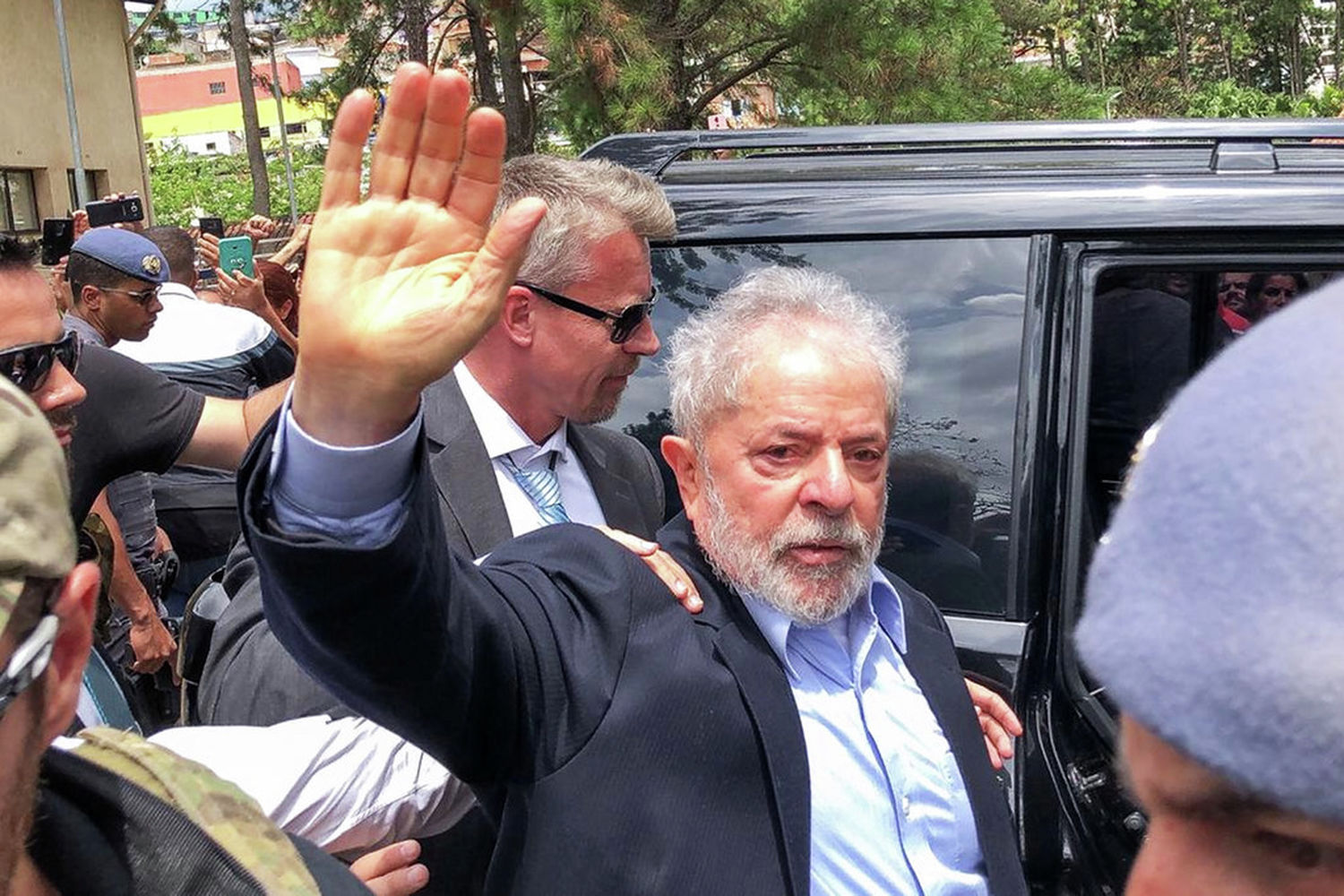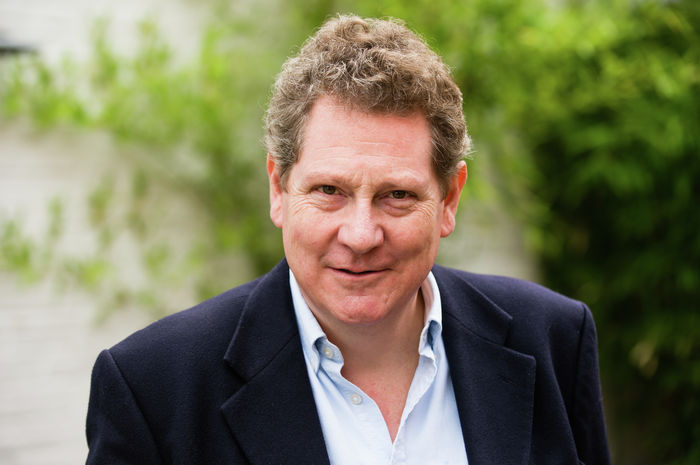From Sao Paolo’s metalworks, to the Presidency, to prison, and back to the Presidency. On Sunday, Luiz Inácio Lula da Silva, a founding member of Brazil’s left-wing Workers’ Party (PT) and former president from 2003-2010, is facing off the incumbent, Bolsonaro. A Lula victory would be one of the most stunning comeback stories in the country's political history, and may well prove critical in the global fight against climate change.
Stark regional inequality between North and South Brazil is an important factor in this election, and in the nature of Lula’s candidacy. Northern and northeastern Brazil is poor. The comparative wealth of cities like São Paulo and Rio de Janeiro in the south brings waves of migrants, attracted by the promise of work and better pay. Lula himself made the journey from the northeast to the metalworks of Sao Paulo, where he became a union leader. From there, he went on to help found the left-wing Partido dos Trabalhadores (PT), otherwise known as the Workers’ Party, during the later years of Brazil’s military dictatorship, and ultimately rose to the country’s highest office.
During Lula’s time as President from 2003-10, the Workers’ Party gained mass popularity in the northeast. According to Tiago Cavalcanti, an economics professor at Cambridge and former policy advisor for Brazil’s Rede Sustentabilidade party, the main story of Lula’s time in office was one of poverty reduction, increased access to education, and the extension of “hope for a rich future to all Brazilians” in a nation that had historically been “deeply unequal”.
Implementing a host of social programmes cemented the disadvantaged northeast as a heartland of Workers’ Party support. Raising the minimum wage by 70%, providing cash transfers to the nation’s poorest under the ‘Bolsa Familia’ programme, and opening up access to university education made ground-breaking improvements to material conditions and social mobility.
'The important thing to understand about Brazil is that the country is dependent on external investment, on foreign investment, and that it has often been in debt to the IMF'
I also spoke to associate professor of Latin American studies Pedro Mendes Loureiro, who specialises in the political economy of the left-wing governments that swept the region in the 2000’s, a phenomenon known as the ‘pink tide’. Where Chavez in Venezuela and Morales in Bolivia were on the more radical side, Loureiro places Lula’s Brazil alongside the more moderate pink tide governments.
Expressing his views on da Silva’s economic record, Cavalcanti says “the important thing to understand about Brazil is that the country is dependent on external investment, on foreign investment, and that it has often been in debt to the IMF”.
Despite stating he has reservations about what he called “excess spending” undertaken in Lula’s second term, Cavalcanti describes Lula as unique in that he managed to “expand the economic pie, while also increasing the share for Brazil’s poorest”. His redistribution projects improved social conditions for millions of people, but at the same time, “he encouraged investment, achieved fiscal, price, and financial stability, and Brazil actually became a creditor to the IMF”.
Perhaps what struck me most from the interviews was the passion that Lula generated in Professors specialising in Economics. Fairly or unfairly, I had had the subject down as a rather emotionless, loveless affair.
“He’s a people person. Good or bad, he evokes feelings in you… It’s a rare quality in a politician”, says Cavalcanti.
But then, Lula’s path in politics has been anything but that of the average politician. Last election cycle, when Bolsonaro rose to the presidency, Lula could not run because he was in jail. In 2018, having been implicated in the major corruption investigation case ‘Lava Jato’, the former President was sentenced to 12 years in prison. However, leaked correspondence published by The Intercept between the judge Sergio Moro and the prosecution led to the annulment of all convictions by the Supreme Court and Lula’s release from imprisonment.
“There were clear biases and procedural irregularities,” says Loureiro. Judge Moro’s case was not helped by controversy over the fact that Bolsonaro, whose path to the Presidency was eased by Lula’s disqualification, later appointed him as Justice Minister.
A victory on Sunday would be another remarkable addition to a political trajectory that will have taken Lula, a former shoe-shine boy, to the Presidency, to prison, and back again.
'The gap between Lula and Bolsonaro on the environment is huge'
Professor Cavalcanti paints the record of his opponent, Jair Bolsonaro, with a very different attitude. According to Cavalcanti, Bolsonaro’s credentials for attracting foreign investment is limited by his denialist approach on climate. The Professor claims the current administration has “missed opportunities on renewable energy investments”, arguing a Lula government would better cultivate the country’s potential assets in wind and solar power.
“The gap between Lula and Bolsonaro on the environment is huge. And data suggests that under Bolsonaro, capital from sources such as international pension funds have been seeking investment elsewhere”.
Bolsonaro’s platform of economic liberalism, although not always adhered to by a President whose primary concern is “political expediency”, has, for Loureiro, contributed to a general trend of “poverty and inequality on the rise” in Brazil. Whilst economic conditions are difficult globally, Bolsonaro’s time in office has left Brazil with high public and private debt levels, and an inflation crisis.
However, Professor Cavalcanti is quick to emphasise that the stakes of Sunday’s election go “beyond the economy”. Under Bolsonaro, deforestation rates have increased, and the Amazon’s CO2 emissions doubled between 2019 and 2020. With the Amazon already transformed from a carbon sink to a carbon source, emitting more carbon into the atmosphere than it absorbs, experts suggest the vital rainforest is at a tipping point and wouldn’t last another Bolsonaro term. Throughout the interview, Cavalcanti comes back to this point: a Lula victory is crucial in the global fight against climate change.
After the environment, Cavalcanti turns to the mishandling of the COVID-19 pandemic, during which nearly 700,000 Brazilians died, and finally the incumbent President’s challenges to the country’s democratic institutions.
'[Bolsonaro] has been a vocal supporter of Brazil’s past dictatorship and has increasingly been criticising the Supreme Court'
“Bolsonaro comes from a military tradition”, says Cavalcanti, “he’s been a vocal supporter of Brazil’s past dictatorship and has increasingly been criticising the Supreme Court”. The Bolsonaro campaign’s undermining of the election’s integrity has provoked concern over whether the incumbent would accept defeat. On Monday, Lula da Silva said he hoped that Bolsonaro would accept the results of the election.
According to Professor Cavalcanti, the strength of Lula’s coalition of support lies in how broad it is, with the inclusion of non-PT voters who are embracing the candidate as the best “defence of human rights, the environment and democracy”.
In the first round vote on October 4th, Lula came out on top with 48.4%, to Bolsonaro’s 43.2%. Most second-round polls predict a Lula victory on Sunday, with recent data leaning towards a 53% vote-share, to Bolsonaro’s 47%.



